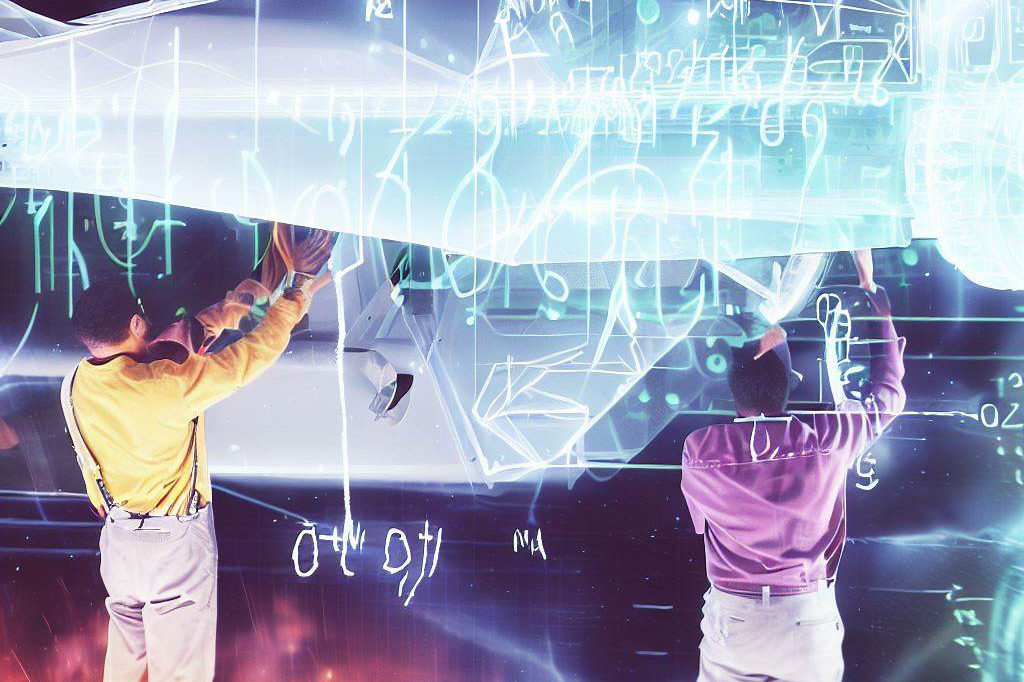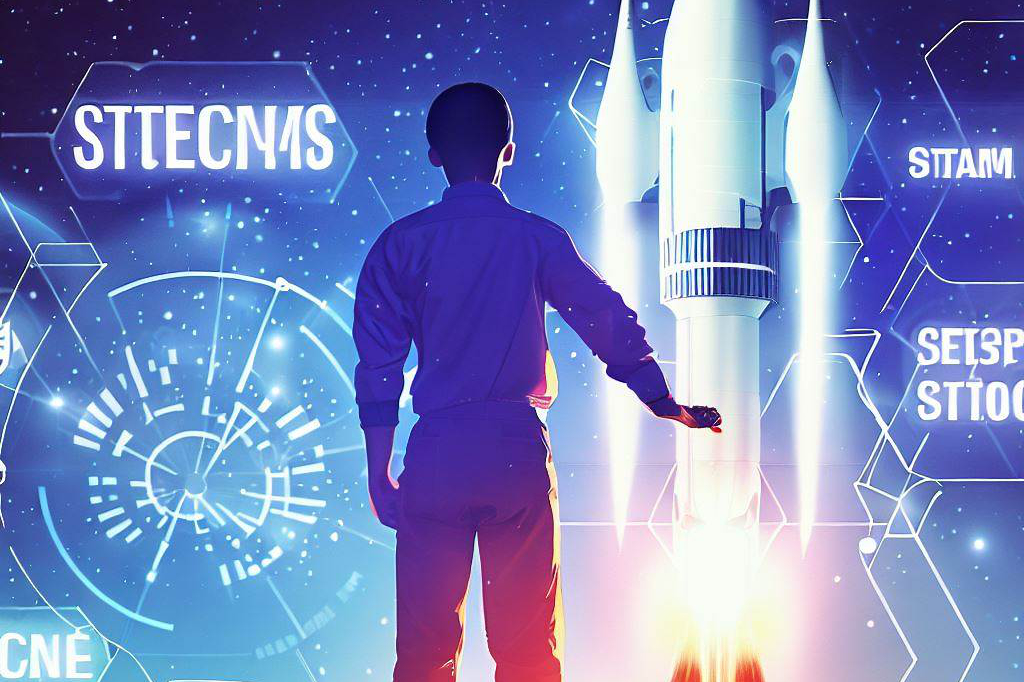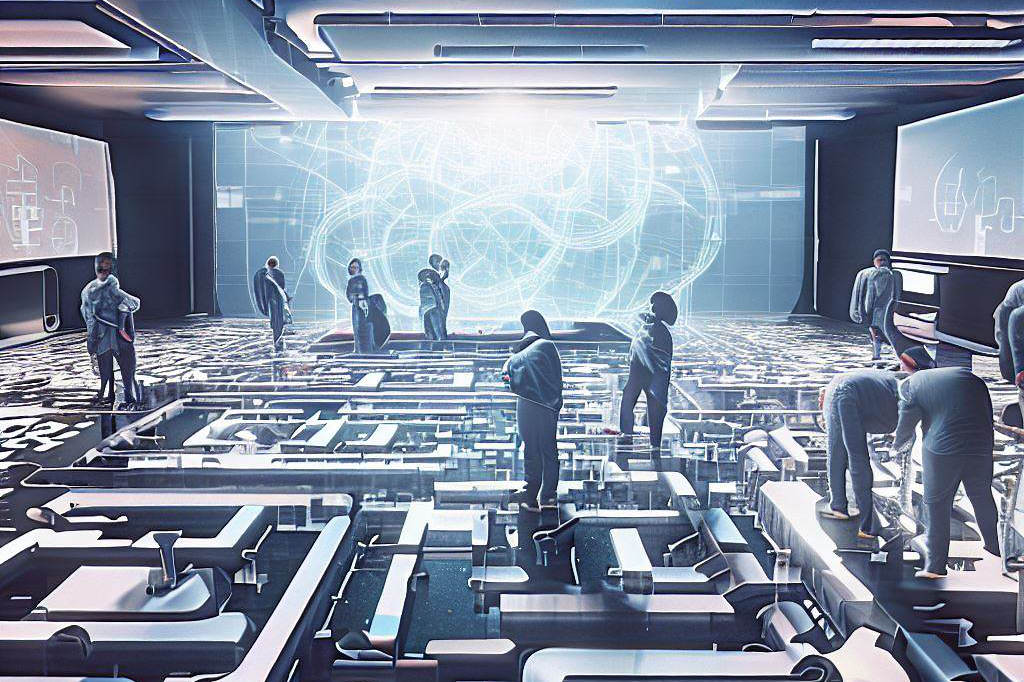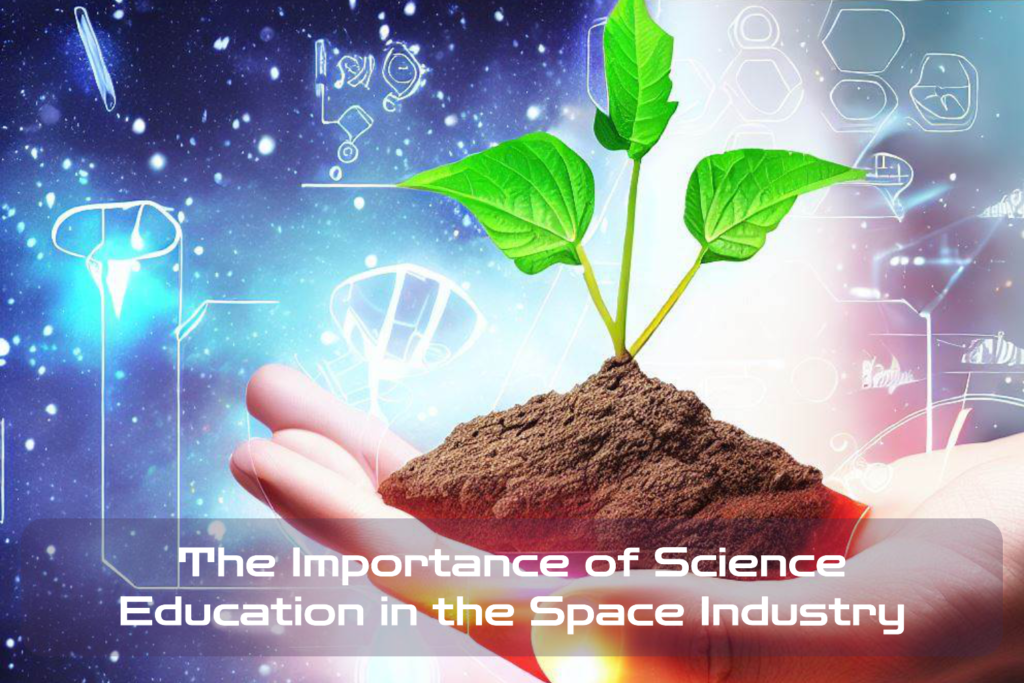The Basics of STEM Education
STEM stands for Science, Technology, Engineering, and Mathematics. It is an interdisciplinary approach to education that focuses on these four subjects.
The goal of STEM education is to provide students with the necessary skills and knowledge to succeed in today’s rapidly evolving technology-driven world. STEM education encourages critical thinking, problem-solving, creativity, and innovation.
Students learn through hands-on experiences such as experiments, projects, and real-world applications. This approach develops not only their technical skills but also their communication skills as they work collaboratively with others.
Why is STEM Education Important in Today’s World?

In today’s world, technology has become an integral part of our daily lives. Almost every aspect of our lives is influenced by technological advancements – from communication and transportation to healthcare and entertainment.
As a result, there is a growing demand for professionals who have a strong STEM background. These professionals are needed to develop new technologies, improve existing ones, and solve complex problems that arise in various industries.
Moreover, countries that invest heavily in STEM education tend to have greater economic growth compared to those that do not. Additionally, promoting diversity in STEM fields can result in innovations that benefit society as a whole.
There is no denying the importance of STEM education in today’s world. It provides students with valuable skills that are essential for success not only in the space industry but also across various other industries.
The Space Industry and Its Reliance on STEM Education

Overview of the Space Industry and Its Technological Advancements
The space industry encompasses a multitude of fields, including aerospace engineering, astrophysics, meteorology, and computer science. This industry has played a crucial role in our technological advancements by developing satellite communication systems, GPS navigation technology, and remote sensing capabilities.
The space industry has also facilitated scientific research into important topics such as climate change, planetary exploration, and the origins of the universe. The space industry is constantly pushing boundaries in terms of technology and innovation.
With ongoing developments in reusable rockets, 3D printing technologies for spacecraft parts, and spacecraft propulsion systems that use solar sails or ion thrusters instead of traditional chemical rockets. These advancements are made possible thanks to STEM education.
The Role of STEM Education in the Development of Space Technology
STEM education is essential to supporting the growth of the space industry. A strong foundation in science, technology, engineering, and mathematics provides students with the critical thinking skills necessary for solving real-world problems related to space exploration. STEM education enables students to design modern spacecraft that can be used not only for human travel but also for deep-space missions.
Students may also apply their knowledge from different fields within STEM education to solve issues such as radiation shielding or food production needed for long-duration human missions outside Earth’s orbit. It is because they have a good understanding of how different materials will perform under high-temperature situations like those experienced during re-entry process into Earth’s atmosphere.
In short, without STEM education, it would be difficult, if not impossible, to achieve many of the milestones we have reached today concerning space exploration. The next generation will continue pushing forward from what we’ve already achieved because they have been equipped with the necessary tools through learning about subjects like physics or chemistry, which form the basis for many discoveries made during development processes leading up to the final stage where spacecraft or rockets can be launched.
The Benefits of a Strong STEM Foundation for Students Interested in the Space Industry

Career Opportunities in the Space Industry for Those with a Strong STEM Background
STEM education is vital for anyone interested in pursuing a career in the space industry. From aerospace engineering to astrophysics, individuals with strong backgrounds in science, technology, engineering, and mathematics are highly sought after by companies and organizations involved in space exploration.
These fields require individuals who possess an understanding of complex scientific concepts, innovative problem-solving skills, and critical thinking capabilities. One area within the space industry that has seen significant growth is satellite technology.
The development of satellites requires a variety of STEM-related disciplines, such as computer science, electrical engineering, physics, and math. A strong foundation in these areas can lead to numerous career opportunities, ranging from designing and building spacecraft to analyzing data collected by satellites.
Importance of Critical Thinking, Problem-Solving, and Creativity in the Space Industry
In addition to specialized knowledge within various disciplines related to STEM education, possessing critical thinking skills is crucial for success within the space industry. Professionals must be able to analyze data sets and identify patterns while drawing conclusions based on their observations.
Problem-solving skills are equally important, as unexpected issues or challenges may arise during missions or projects related to space exploration.
Being able to think creatively while implementing solutions efficiently can make all the difference between success and failure. Having diverse perspectives also plays a significant role in promoting innovation within the field of space exploration.
Encouraging individuals from different backgrounds with different ways of thinking can lead to fresh ideas that can reshape how we approach problems within this industry. Overall, having a strong foundation based on STEM education is necessary for those interested in pursuing careers related to space exploration or satellite technology since it provides individuals with access to career paths that could have massive implications on humanity’s future beyond Earth’s atmosphere.
Challenges facing STEM education in the space industry

Lack of diversity and representation
Despite a growing emphasis on diversity and inclusion in the workplace, the space industry still faces significant challenges in promoting diversity within its workforce. Women and minority groups are still significantly underrepresented in many STEM fields, including those related to space exploration. This lack of representation not only limits opportunities for these individuals but can also result in a narrower range of perspectives and ideas being brought to the table.
There are several reasons why diversity remains an issue in the space industry. One is that it can be difficult to attract young people from underrepresented groups into STEM fields if they don’t have role models or mentors who look like them.
Additionally, some STEM fields may have cultural or societal biases that discourage certain groups from pursuing them.
To address these issues, companies and educational institutions must take proactive steps to promote inclusivity and create more diverse talent pipelines.
Funding issues for programs promoting STEM education
Another major challenge facing STEM education in the space industry is funding.
Many schools and organizations lack the resources needed to provide quality science and technology education to students, which can limit their ability to pursue careers in these fields later on.
Additionally, public funding for science research has been declining over time, making it increasingly difficult for researchers to secure grants for their work. To combat this issue, both private companies and governments need to invest more heavily in STEM education initiatives at all levels.
This could include funding for after-school programs or summer camps that focus on science and technology topics or providing scholarships for students pursuing degrees in these areas. By investing now, we can ensure a strong pipeline of talented scientists, engineers, and researchers who will be able to drive innovation forward well into the future.
Initiatives to Promote and Improve STEM Education for Future Generations

Public-Private Partnerships to Support Educational Programs
One of the most effective ways to promote and improve STEM education is through public-private partnerships. These partnerships bring together government agencies, educational institutions, and private companies, creating a collaborative effort to provide students with access to quality STEM education. By partnering with private companies in the space industry, students can be exposed to real-world applications that show the relevance and importance of STEM education.
For example, NASA has partnered with several private companies like Boeing and Lockheed Martin to support educational programs that engage students in exciting space exploration projects. Through these programs, students have access to resources such as mentors, internships, and hands-on experience that help them develop critical thinking skills.
Mentoring Programs to Encourage Underrepresented Groups to Pursue Careers in Science and Technology
Another initiative that promotes STEM education is mentoring programs. These programs aim at encouraging underrepresented groups, such as women and minorities, in science and technology fields by providing them with a supportive network of professionals who can guide them through their academic journey.
NASA’s Office of Education has established a mentoring program called NASA G.I.R.L.S (Giving Initiative Resources for Learning Science) which focuses on young girls interested in science.
The program connects girls with mentors who are female scientists or engineers working on actual NASA projects. The primary goal of this program is not only to get more girls into science but also to encourage diverse perspectives within the scientific community.
Final Thoughts:

The Importance of STEM Education in the Space Industry
STEM education is crucial to the development and growth of the space industry. With technological advancements pushing boundaries further and further, it is necessary to have a strong foundation in science, technology, engineering, and mathematics to continue progressing. The world needs individuals with creative problem-solving skills who can think critically and innovatively.
STEM education is not only important for those interested in careers in the space industry but also for anyone looking to make an impact on society through technological advancements. By encouraging students to pursue STEM fields from a young age and providing them with the resources they need, we can help create a future where new discoveries are made possible every day.
It is crucial that we continue to support programs promoting quality STEM education at all levels. This can be achieved through public-private partnerships, federal funding initiatives, mentoring programs for underrepresented groups, and more. It is important that we invest in our future by investing in our youth.
By providing students with opportunities to explore their interests in science and technology through hands-on experiences like internships or mentorships, we can help create a diverse workforce that tackles the challenges of tomorrow head-on. We must work together as a community to ensure every student has access to quality STEM education.
With dedication and hard work from educators, businesses, government agencies, and individuals alike – the possibilities are endless. Together, we can inspire innovation that could change our world – from exploring new planets beyond our galaxy to developing life-saving medical treatments – by supporting quality STEM programs at all levels of learning!

C M, a seasoned editor, journalist, and consultant, is deeply fascinated by the convergence of technology, space, and the future of humanity.
With a particular interest in transhumanity, futurology, and the philosophical and ethical dimensions of these domains, C M serves as the lead contributor to SpaceSpotlight and TranscendSphere.
When not penning insightful articles on these rapidly evolving fields, C M indulges in their love for podcasts and books, proudly embracing their status as a ‘Happy Nerd Extraordinaire!’



